The Wild, Wonderful World of Dog Shows
Have you ever wondered how you and your dog would do on the competitive dog show circuit? Here’s the doggies.com guide to all things conformance.
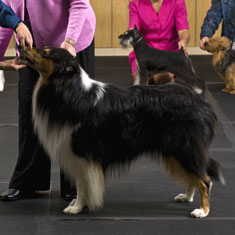
Choosing a breed to show
The best way to choose a breed to show is to choose a breed you would like to have live with you. Although not all owners live in the same home with their show dogs, you must feel passionate about the breed in order to put forth the effort and money required to produce champion quality dogs. The best way to do this is to find a breed you actually like.
There is some degree of strategy you can use in choosing a breed, such as by considering that the Westminster Show is dominated by the Terrier Group, which has won 45 out of 103 years. The winningest of the Terriers is the Wire Fox, which has won 13 times. However, if you don’t want to have terriers in your home due to their temperament you won’t enjoy the ride, so what’s the point?
If you are going to handle your own dog rather than hiring someone to do it for you, you’re going to be spending a very large portion of your life around the breed you choose, so choose carefully.
What makes a good show dog?
The foundation of a good show dog lies in his or her breeding. The very name of the sport, “conformance,” indicates that you are looking for a dog that best conforms to the breed standard. The breed standard is the listing of characteristics that the American Kennel Club uses to define a particular breed. Every aspect of the dog’s appearance is specified in the standard.
For example, the eyes of a Beagle must be “large, set well apart, soft and houndlike, with a gentle and pleading expression, and of brown or hazel color.”
The muzzle of a Brittany must be of “medium length and taper gradually in both horizontal and vertical dimensions as it approaches the nostrils”
The forequarters of the Dalmatian must fit the following definition: “The shoulders are smoothly muscled and well laid back. The upper arm is approximately equal in length to the shoulder blade and joins it at an angle sufficient to insure that the foot falls under the shoulder. The elbows are close to the body. The legs are straight, strong and sturdy in bone. There is a slight angle at the pastern denoting flexibility.”
So how do you find a dog that meets the breed standard? The best way is to choose a puppy whose parents meet the breed standard. Breeding stock for show dogs are usually identified as meeting the standard by virtue of their winning dog shows. The names of winning show dogs are preceded by the designation “CH” (champion) or “GCH” (grand champion), indicating that they have won a minimum standard of shows. These designations are your assurance that your puppy comes from a good pedigree line. The further back into the pedigree you can trace champions, the more likely that your puppy will be champion material.
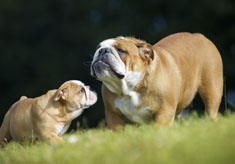
What’s required of a show dog?
The life of a show dog is not as carefree as one might think. Dog shows are held all over the country, and they last a long time. Your dog will only be the center of attention for a very small fraction of that time, and must be reasonably well-behaved for the whole time, not just when he or she is in the ring.
Show dogs must be able and willing to travel, which means you as the owner must either be able and willing to travel, or able and willing to hire a handler who will show your dog.
Your dog must also be willing to stand still while being groomed backstage and while being handled by the judge. The judge will want to look at your dog’s teeth and to verify that he has not been neutered. Both of these require the judge to touch your dog in sensitive areas, and your dog cannot bite the judge!
Finally, your dog must stand for being crated backstage while all the other dogs are judged, without causing an undue disturbance.
In order to be designated as a champion, your dog must win a total of 15 points, including at least two major wins. Each major must be won under a different judge, and at least some of the non-major points must come from yet another judge. The method of awarding points is very complex and beyond the scope of this article, but in order to collect 15 points, you would have to attend at least five shows, assuming all of them were majors and you won each of them. Given that it would be unusual to win the first five major shows you attend, it is likely you will have to go to many more than five for your dog to be crowned a champion.
Learning more
The very best way to learn about dog shows is to attend some. Look for a benched show, which means that the dogs will be available in the backstage area for you to review. Their handlers will also be available to talk to you about the specific breeds and about dog show life in general.
Narrow your preferences down to a few breeds, then wander around the backstage area and ask questions. Of course, you will not be welcome in the bench area for a breed that is just about to be shown, but you can visit with the dogs who have already been shown or with the dogs who are scheduled for much later in the day.
Find out about the grooming requirements for the breeds in which you have an interest. A lot of the time and expense that goes into showing dogs is due to their grooming requirements. For example, those long, gorgeous locks on a Yorkie will require you to keep the fur protected and wrapped in between shows. Other breeds, like the Poodle, require precise clipping to keep the coat within show specifications.
You can also use your time in the benching area to find out which breeders are well-respected for their knowledge of the breed and for their success in delivering championship dogs.
If you do make the choice to dive into the conformance circuit, we wish you lots of luck on your journey!
Doggies Den: Latest Articles
 Homemade Thanksgiving Treats for Your Dog
Homemade Thanksgiving Treats for Your Dog
NUTRITION We all want to include our dogs in our holiday celebrations, but hopefully, you're aware that sharing table scraps with your dog isn't always the best idea.
 Keeping Your Dog Safe during the Summer Months
Keeping Your Dog Safe during the Summer Months
HEALTH Summer is coming on fast, so it’s time to plan how you will keep your dog safe and healthy through the lazy, carefree, warm days.
 Vaccination Time Again-Keeping Your Puppy Healthy
Vaccination Time Again-Keeping Your Puppy Healthy
DOG HEALTH So you have your new puppy picked out. There are quite a few shots, treatments and examinations that will keep the newest member of your family healthy.
 Canine Thanksgiving Feast
Canine Thanksgiving Feast
NUTRITION With the wide variety of food at Thanksgiving dinner, chances are you'll want to give your dog something special, too. If you're contemplating what to feed your dog for the holiday, here is a guide to a great Canine Thanksgiving Feast.
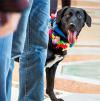 Dog Walking Tips Every Owner Should Know
Dog Walking Tips Every Owner Should Know
DOG FUN Walking your dog is not only crucial to keeping him healthy and happy, it strengthens the bond between your canine friend and his caregiver. There are a lot of obstacles out there. Don’t forget these simple tips to keep your walk fun and safe in the outside world.
 The Benefits of Physiotherapy for your Dog
The Benefits of Physiotherapy for your Dog
HEALTH The same techniques that physiotherapists use to treat a variety of injuries and conditions in humans have been adapted to suit animals with great success. Family pets, show dogs, and working dogs can all benefit greatly from physiotherapy. Dogs whose activities involve a lot of agility are especially susceptible to the types of problems that physiotherapy can address.
 The Decision- Adding a Dog to Your Family
The Decision- Adding a Dog to Your Family
FIRST TIME OWNERSBringing a dog into your family is a decision where many people don’t realize it’s magnitude until after they have the dog. There are a number of things that you need to research before you decide to purchase a dog, and it starts right in your own home.
 Bringing Your Dog Into Your New Baby's Life
Bringing Your Dog Into Your New Baby's Life
HEALTH Many believe that a dog and a new baby cannot happily coexist, so therefore the dog has to go. This is not necessarily the case.  A new baby does not mean you have to abandon your dog.

Doggies Den:
Most Popular Articles

Dog Pregnancy Symptoms
HEALTHIf you suspect your dog might be pregnant, check out part one in this series on pregnant dogs, where we cover pregnant dog symptoms.
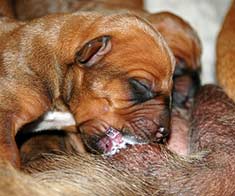
Dog Birth
HEALTHIn the third article of our dog pregnancy series, we look at the wonderful, but messy, process of bringing newborn puppies into the world.
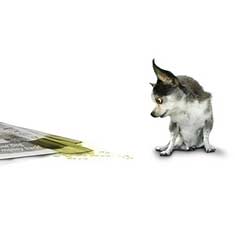
Indoor Dog Potties
DOG PRODUCTSIt's been a long day at work. You were so busy, you didn't even take time to eat a sandwich, let alone run home to let your dog out. You're on your way home, knowing the poor dog is crossing his or her legs by now, when your car breaks down, delaying you even further. Can't somebody make this easier?
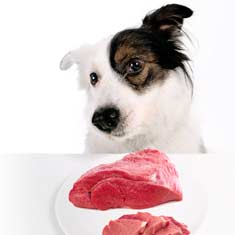
Your Dog’s Digestive System
PHYSIOLOGYEver wonder why your dog eats so fast? Or why he eats gross things? Or why he gets sick to his stomach? Or why his waste stinks so bad? Some of these things are normal, some are not.

Canine Respiratory System
BREATHINGThe basic function of your dog's respiratory system is to bring oxygen in to and remove carbon dioxide from the body. Knowing the symptoms of respiratory diseases can help you help your stay healthy.
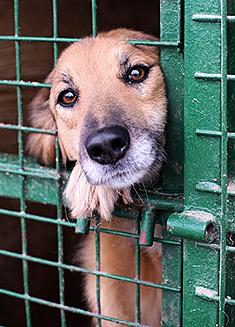
Shelter Dog Adoption Tips for Success
ADOPTION Are you intimidated by the prospect of "rescuing" a dog from a shelter? One reason that you may be wary of adopting a dog from a shelter is not knowing how to choose. Adopting a dog from a shelter can be a rewarding process, if you're prepared to do a reasonable amount of research.
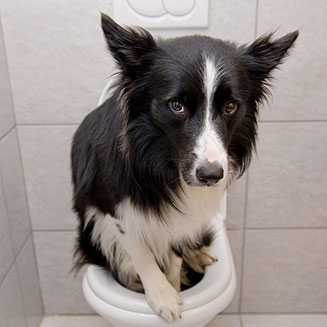
Canine Urinary Tract Infections
SYMPTOMS AND TREATMENTDoes your dog seem to be having trouble relieving his or her bladder? Learn how to recognize the signs of urinary tract infections and how to treat them before they spread.
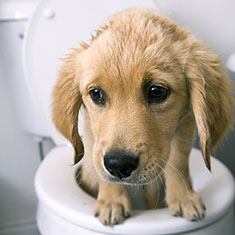
What to do for Dog Diarrhea
SYMPTOMS AND REMEDIESIf you have dogs in your house for any length of time, you have likely experienced at least one bout of dog diarrhea. Beyond the pain in the tuckus involved in cleaning up the mess, you should know what causes diarrhea, and when it's important to see the vet.
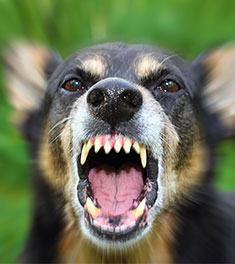
What to do for a Dog Bite
DOG BEHAVIOR Getting bitten by a dog can be scary, and you may be tempted to run around in circles for a while, trying to figure out what to do. Here's our guide to help you manage the situation.
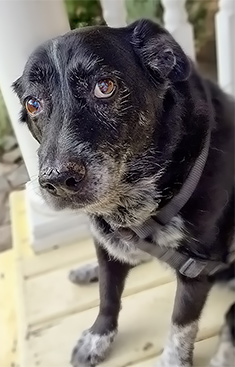
Top Ten Tips for Living with a Senior Dog
DOG HEALTH Bringing home a new puppy is so exciting, but it doesn’t take all that long for your exuberant puppy to grow into a senior dog who may have special needs. Here are the doggies.com top ten tips for taking care of your companion who has been with you through so much.
